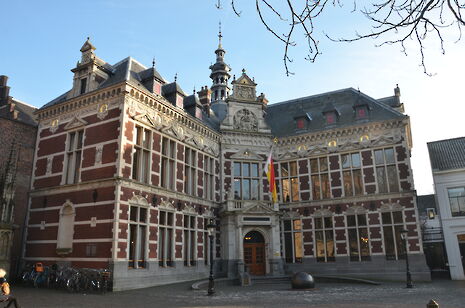MML faculty welcomes Erasmus scheme extension
The prime minister announced this week that the UK will remain part of the Erasmus programme until at least 2020

The Faculty of Modern and Medieval Languages (MML) has praised the government's commitment to remaining in the Erasmus programme until 2020, after the Brexit date.
A spokesperson from the MML faculty told Varsity, “The Faculty of Modern and Medieval Languages welcomes the government’s expression of support for Erasmus+. The Erasmus scheme provides vital mobility and funding to a large number of our students going on the Year Abroad, and the Faculty in Cambridge is enriched by the presence of students from many European universities.
“As students currently applying for language courses at UK universities still face uncertainty about the Year Abroad, we very much hope that this expression of support in the shorter term will translate into ongoing support in the long term.”
Prime Minister Theresa May announced this week that the UK expects to remain in the Erasmus student exchange programme until at least the end of 2020, continuing after Brexit in March 2019.
May praised the Erasmus+ scheme, a European funding programme established in 1987 to increase student mobility within Europe. The programme offers university students a possibility of studying, or doing an internship abroad, in another country for a period of at least two months and maximum twelve months per cycle of studies.
Students enrolled in the Erasmus+ scheme receive grants which cover partly the costs of staying abroad, though they do not cover all life expenses in most cases. They must also continue to pay tuition fees at their home institution.
Within Cambridge, students currently studying the Modern and Medieval Languages, Law or Engineering Tripos are eligible for the Erasmus+ scheme. MPhil students, with the exception of the two-year Architecture and Design course, cannot take part in Erasmus due to the course length. PhD students from a number of departments are also eligible to spend time abroad for research purposes through the Erasmus scheme.
In the MML department, there are seventy Erasmus places available annually for students hoping to study abroad, the locations of which are circulated during the Year Abroad meeting in Michaelmas term. Traineeships, as Language Teaching Assistants at a school in Europe, for example, can also be undertaken abroad, for which students can apply for grants to cover living costs.
Undergraduate engineering students can take part in exchange programmes with the CentraleSupelec Paris (CSP) or National University of Singapore (NUS), for which there are two to three places available at each institution. In the Law faculty, approximately twenty students can take part in Erasmus+ schemes at the Universities of Poitiers (France), Regensburg (Germany), Utrecht (the Netherlands), and the Universidad Autonoma de Madrid (Spain).
It was previously unclear whether Brexit would affect Year Abroad arrangements for 2018-19 due to the developing Brexit negotiations. Students who are currently studying in the EU, current beneficiaries of Erasmus funding, and those applying for Erasmus funding in 2017-18 had already had their funding guaranteed.
Former CUSU president and current NUS vice-president for higher education, Amatey Doku, tweeted earlier today, “2020 is literally round the corner. We need a much more long term plan and guarantee for staying in the Erasmus Scheme to ensure that students can continue to enjoy all the benefits of studying abroad.”
 News / Report suggests Cambridge the hardest place to get a first in the country23 January 2026
News / Report suggests Cambridge the hardest place to get a first in the country23 January 2026 Comment / Cambridge has already become complacent on class23 January 2026
Comment / Cambridge has already become complacent on class23 January 2026 News / Students condemn ‘insidious’ Israel trip23 January 2026
News / Students condemn ‘insidious’ Israel trip23 January 2026 Comment / Gardies and Harvey’s are not the first, and they won’t be the last23 January 2026
Comment / Gardies and Harvey’s are not the first, and they won’t be the last23 January 2026 News / Cambridge ranks in the top ten for every subject area in 202623 January 2026
News / Cambridge ranks in the top ten for every subject area in 202623 January 2026











